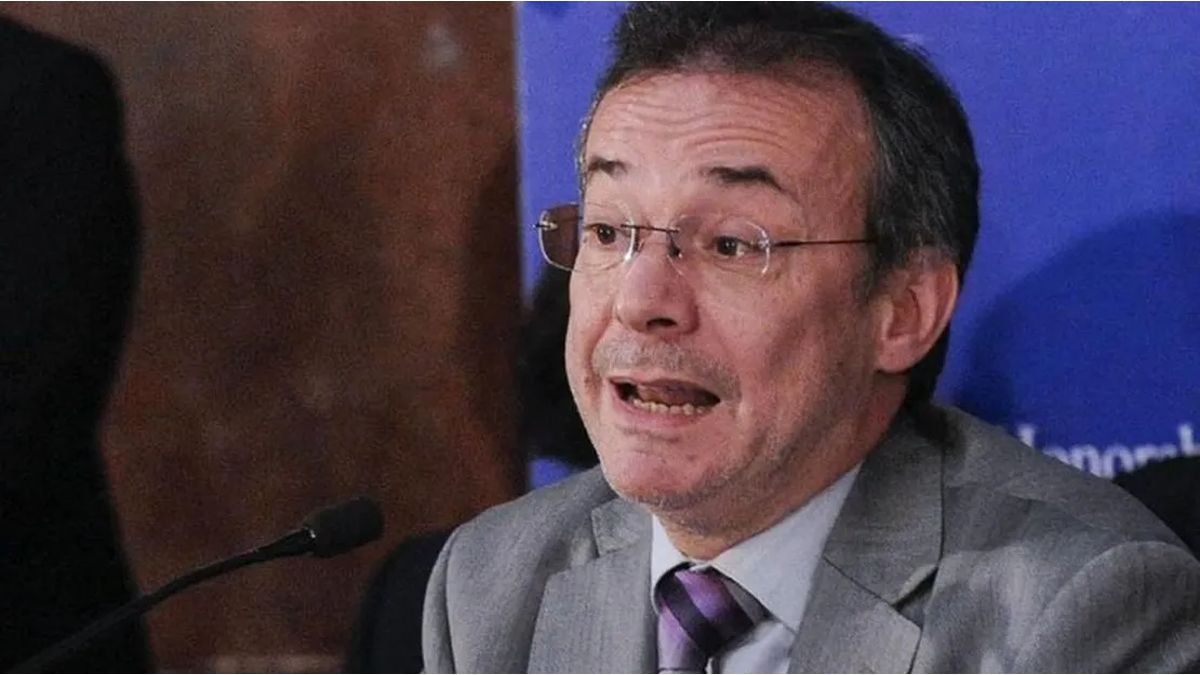This Saturday, and through a radio interview, the economist Daniel Artana expressed positive projections for the direction of the economy, where he evaluated as fundamental elements the Slowing inflation and controlling the exchange rate. Consulting firms have already issued their first reports on the index of price increase for the month of July.
“According to the rumors after the Caputo’s meeting with stockbrokers, July would be the month of lowest inflation of the governmentand it is consistent with the measurements that we and other colleagues have that it could have pierced the 4% barrier,” analyzed Artana, who understood that “with the recess that there iswhich is still very important and as long as the exchange rate policy remains at this 2% monthly, Inflation will ease a littlenow it’s going to be more leisurely than what we saw.”
Also, consulted by the poverty rate that stands at around 54.8%the economist opined that “should start to go down little by little Because that is about the first quarter, where inflation soared and you also have the fact that the income of informal workers was falling. Only in the last measurement was there any recovery of what was lost in relation to inflation.”.
“This does not mean that poverty levels do not remain high.which requires that inflation falls further and that informal work gives way and that formal work grows, but this requires economic growth and other issues related to labour reform”, continued interviewed on Mitre radio.
Daniel Artana: “The discussion is about what kind of change we tolerate”
The owner of the FIEL Foundation I evaluate market reactions to the economic measures of management of Javier Milei: “First there was a Rising risk across the emerging worldglobal reasons but also reasons specific to Argentina. We have had bad news in the variables that affected Argentina, such as the Strong depreciation of the dollar”.
He also referred to the cepo: “In my interpretation, The President has said that one condition for lifting the restrictions is that inflation is very low.. The difference is that some would do it with 4% monthly and the president says he would do it with 0 or 0.5% monthly.” “If you are willing to tolerate the exchange rate that results from supply and demand in the market each day, you lift the clamp tomorrow because there is an exchange rate level at which supply and demand are balanced. The discussion is what kind of change we tolerate”he added.
Finally, Artana stressed the need for deregulation of financial services: “We studied the topic of the financial market because it was somewhat surprising that progress had been made with many deregulation measures and there was still a super-regulated financial sector.”. You have all kinds of obstacles that end up making some issues more expensive.. So you have to clarify these issues so that there is the greatest possible competition on a level playing field and so that people are clear about the risks of each option.”
July inflation: what data do the consulting firms handle?
July inflation was closer to 4% than 3%, according to the main consulting firms, while the debate begins on whether it is possible to achieve zero cost of living as the Government predicts.
Almost three weeks after the launch of the plan that promises “zero emissions”, Phase 2 of the economic program, Forecasts indicate that prices will not slow down as much as the Executive would like.
The postponement of tariff adjustments (energy and transport) was important for the decrease in inflation for the month, but regulated prices rose more than the general level due to the rise in tobacco prices (changes were implemented to the internal tax on this good in the Bases Law).
Meanwhile, seasonal prices rose 2.3% due to a slight deflation in clothing prices associated with winter season sales.
Source: Ambito




